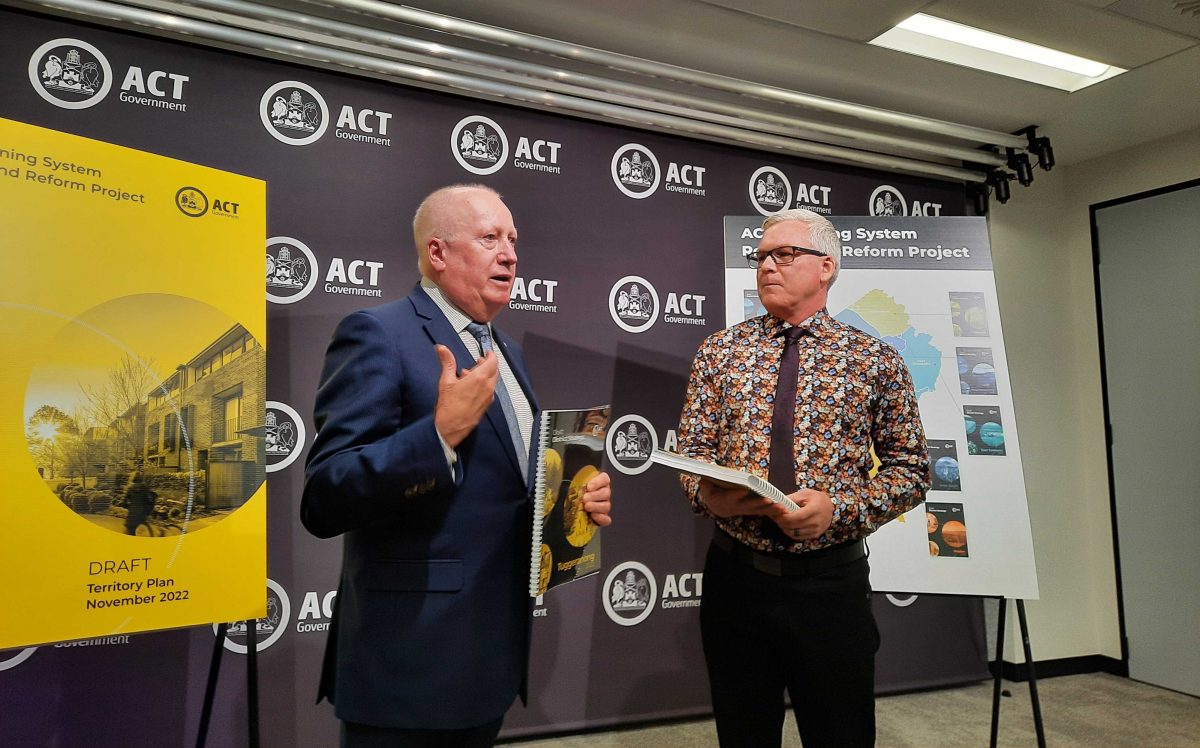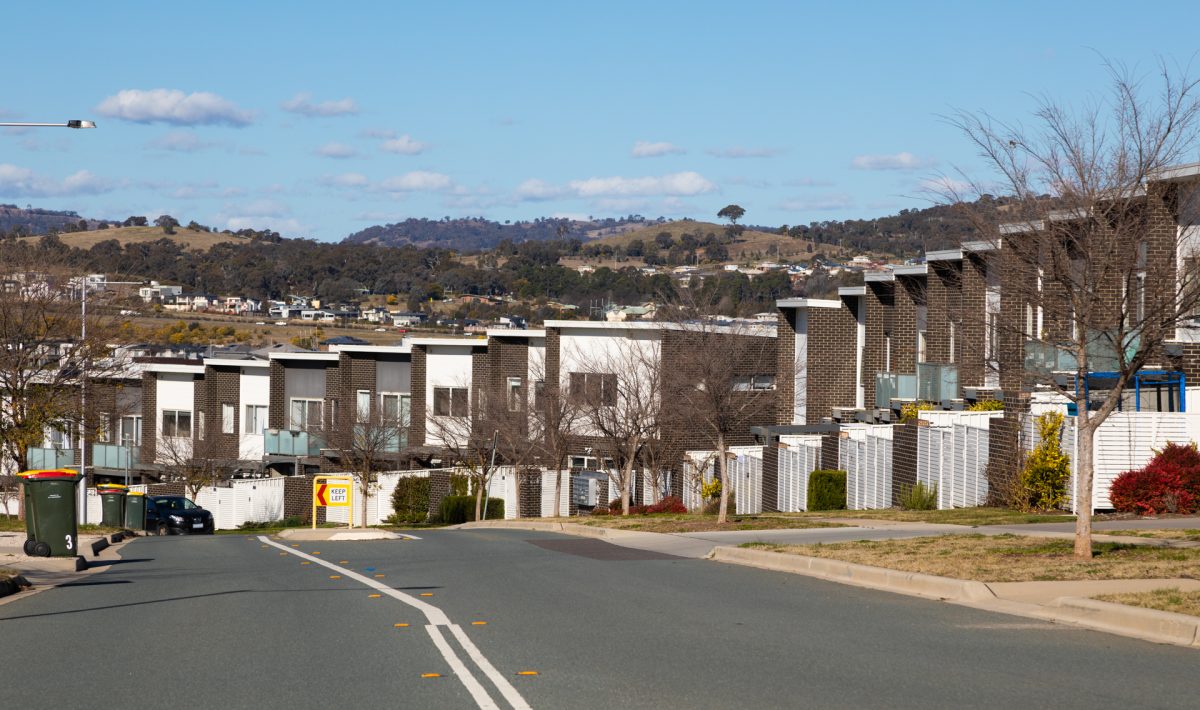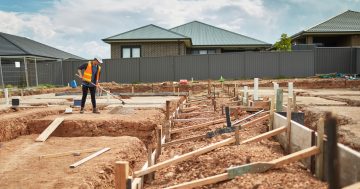
Planning Minister Mick Gentleman and Chief Planner Ben Ponton have a tough audience but could have done more to head off many issues. Photo: Ian Bushnell.
Everyone from the Chief Planner down has acknowledged that the ACT’s current planning system is broken.
Unfortunately, how it is not working depends on your perspective, what side of the development fence you’re on and where you live.
The planning review underway has produced a draft Planning Bill that has pleased hardly anyone, as evidenced by an Assembly committee report dropped before Christmas with nearly 50 recommendations which, if all are accepted, would defeat the purpose of reform – a simpler, streamlined system focused on good planning outcomes.
There is no doubt that the current tick-the-box system can be gamed, resulting in some perverse outcomes, but it can also have proposals stuck in process creating lengthy and costly delays.
Many of the recommendations focus on the need for more and better-defined consultation, clearer language, proper governance and more scrutiny from the Assembly.
The consolidation of power in the Chief Planner, while also heading the planning directorate, and the Minister, and what constitutes a Territory Priority project, also are questioned.
But overall, the same fears about development that have dominated the planning debate in Canberra for decades permeate people’s concerns.
Density, loss of green space, traffic, ugly design, oversized developments and environmental damage are all valid issues.

Missing middle: more affordable, medium-density development is a must for Canberra. Photo: Michelle Kroll.
Liberal committee member Mark Parton, who says the government should start again from scratch, says the draft Bill is designed to make urban infill easier.
Well, yes, it is.
Canberra’s pressing housing needs cannot be ignored or met by simply adding more suburbs to the city’s fringe.
Like it or not, decades of poor federal government policy have helped price many people out of the detached housing market and, whether they rent or may be able to buy, medium-density townhouses or apartments – the so-called ‘missing middle’ – close to employment are what is required.
Not to mention modern community and public housing.
This is an imperative that conflicts many of us but one that has to be confronted.
It means some of the city’s more fortunate areas will have to share their leafy streets with newcomers.
It also means the ACT needs a planning system that will allow this new housing to be approved and built quickly to keep pace with the city’s growth.
But it should not mean the sum of all our development fears. And there is no reason why speed and good planning should be mutually exclusive.
What the government should be doing is providing the planning directorate with enough capacity and skills for a smooth but diligent passage through the assessment system, as well as putting developers on notice about its expectations.
If anything, a more flexible system should give the planning authority the scope to demand certain standards and/or reject developments.
Infill should not mean the destruction of neighbourhoods if it is done sensitively, according to the good planning principles the reforms aspire to.
There is also land close to the city but outside established areas being identified for medium-density living, such as the Yowani Country Club, Kamberra Estate and the racecourse in North Canberra, and East Lake, Dairy Road and the Curtin horse paddocks in South Canberra.
Those developments, if guided well, should enhance Canberra’s housing mix.
But the government does have a problem with this Bill, which has its coalition partner, the ACT Greens, offside as well. Even the Labor committee member Susanne Orr, while supporting its passage through the Assembly, has reservations.
A more engaged minister who was not so inclined to defer to his directorate could have headed off some of these issues at the consultation stage.
The government cannot start over but will need to adopt enough of the recommendations to keep faith with the community and its partner in government without undermining the intent of reform.
Planning has always been a vexing issue in this planned city where many people are well-informed and process savvy.
Somehow the government must find a way to offer some of the protections and accountability sought but also end up with legislation that provides the platform for a better system.
This is where Chief Minister Andrew Barr, given the importance of planning reform, should take charge of negotiating, allaying concerns and arguing the government’s case.
In the end, though, the government will have to draw a line in the sand because too much compromise will not deliver the outcomes required.



















